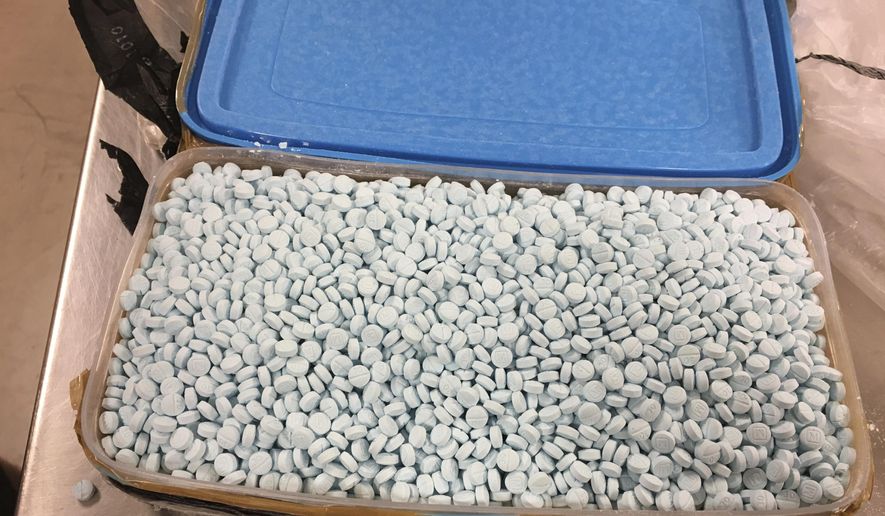A House panel on Friday advanced a bill to permanently place fentanyl on the most-restrictive list of drugs, clearing the way for a floor vote.
The Energy and Commerce Committee voted 27-19 in favor of the HALT Fentanyl Act that would place the synthetic opioid and analog substances on the Schedule I list of drugs with a high risk of abuse.
“In just one year, lethal fentanyl poisonings claimed the lives of over 5,000 Ohioans and more than 70,000 Americans,” said Rep. Bob Latta of Ohio, a lead Republican sponsor. “It is clear that swift action is needed to stem this crisis.”
Permanent scheduling is a key priority for President Biden and both parties, though the effort’s path to becoming law is complicated by Democrats’ aversion to mandatory minimum criminal penalties for certain fentanyl-related offenses.
Reps. Angie Craig of Minnesota and Kim Schrier of Washington were the only Democrats to vote in favor of advancing the House bill Friday.
Fentanyl is used to treat severe pain in cancer patients and others, but it’s also produced illicitly in clandestine labs — often in Mexico with Chinese chemicals — and trafficked across the southern U.S. border. It is pressed into fake pills or cut with other drugs, so American drug users might take fentanyl without knowing it.
Roughly 70,000 of the 107,000 overdose deaths in the U.S. were linked at least in part to fentanyl in 2021, the most recent year for which complete data is available.
Experts say permanent scheduling would result in stiffer penalties under guidelines from the U.S. Sentencing Commission and send a signal to China and Mexico that the U.S. is serious about tackling the fentanyl problem as it pressures those nations to do more.
Mr. Biden told Congress to send him a bill that permanently puts illicit fentanyl-related substances on Schedule I before temporary scheduling expires in December 2024.
However, Mr. Biden and Democratic allies want to exempt quantity-related fentanyl offenses from mandatory criminal penalties, saying judges need flexibility.
“This bill doubles down on criminalization-first policies and does nothing, in my opinion, to get our country out of the opioid crisis,” Rep. Frank Pallone, New Jersey Democrat, said of the GOP bill during Friday’s markup.
Senate Judiciary Committee Chairman Richard J. Durbin, Illinois Democrat, has aired similar concerns. So some raise doubts that the legislation will make it into law in its current form.
Rep. Morgan Griffith, Virginia Republican and a lead sponsor of the HALT Fentanyl Act, said the debate over mandatory minimum penalties is a fair and rational one.
However, “that debate belongs on another bill and it belongs in a different committee,” he said. “Let’s make it harder on the bad guys.”
• Tom Howell Jr. can be reached at thowell@washingtontimes.com.




Please read our comment policy before commenting.